Our project contained several main results which you can find on this webpage.
During the project duration they were also disseminated within various social media.
Civic Competence Framework for Youth

Framework contains:
Theoretical background for civic competence framework for youth
Methodology of development of the civic competence framework
ATTACHMENT 1: Civic competence framework for youth
Self-Assessment of the civic competence level for youth
Tool is multilingual and contains separate versions in English, Polish, Turkish, Romanian, Lithuanian, Slovenian and Armenian.
Self-Assessment is an online tool which allows the youth to evaluate their Civic Competence Level within just 10-15 minutes using simple tool developed especially for this purpose.
Interactive Guidebook with Interactive Educational Modules
Interactive Guide contains separate versions in English, Polish, Turkish, Romanian, Slovenian and Lithuanian.
The topic of the guidebook concerns Civic Competences. The module was developed to support various groups of educators and youth workers, especially those with less experience, in the implementation of educational activities for youth. This resource contains 31 ready-to-implement modules described in written form, with additional animations and supporting tools. The modules have various lengths (ranging from 2 to 8 hours) and address various topics connected with Civic Competence Development.
Social Campaign in Poland
“Mój Głos – Mój Los” (My Voice – My Fate)
The “Mój Głos – Mój Los” social campaign was conducted in Poland to increase awareness among young people about the electoral process for the European Parliament elections. The campaign aimed to educate and motivate young voters to participate in the elections by simplifying and explaining the process in an engaging way.
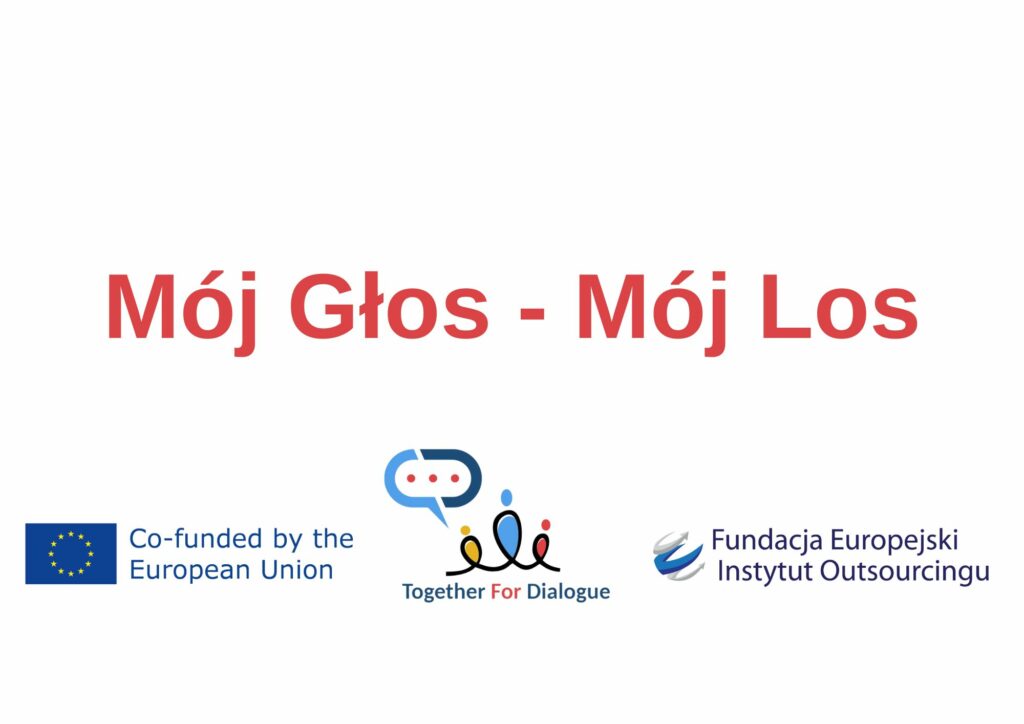
Watch the Campaign Video
Recognizing that young people often have limited knowledge and low engagement in elections, the campaign addressed these challenges through a series of online videos. The campaign was divided into three phases: initial research and development of the campaign name and topics, video production, and the final phase of posting the videos across social media platforms, including Facebook, Instagram, and YouTube.
The videos, launched in the week leading up to the elections, successfully captured the attention of young people and raised awareness of the importance of voting. As a result, the campaign not only expanded knowledge of the electoral process but also fostered a greater interest in civic life among youth.
Social Campaign in Moldova
Identifying the Needs and Problems Faced by Young People
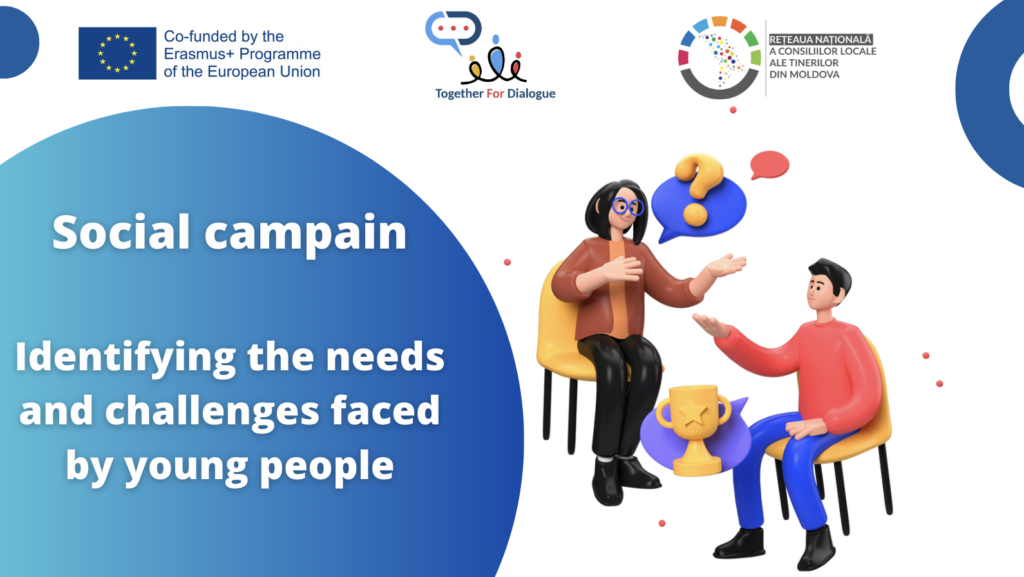
The social campaign “Identifying the Needs and Problems Faced by Young People” was conducted in the Republic of Moldova with the aim of involving young people in collecting data on local issues they encounter. The goal was to develop proposals that could be submitted to decision-makers for resolution.
The campaign engaged 183 young members of District and Municipal Youth Councils across 27 districts, who facilitated the survey of 2,500 young people. These efforts led to the identification of key local needs and challenges, which will be documented in the National Report on Youth Needs and Problems. As a result, the findings will guide the organization’s future development and strengthen the connection between young people and decision-makers at the local level.
Podcasts
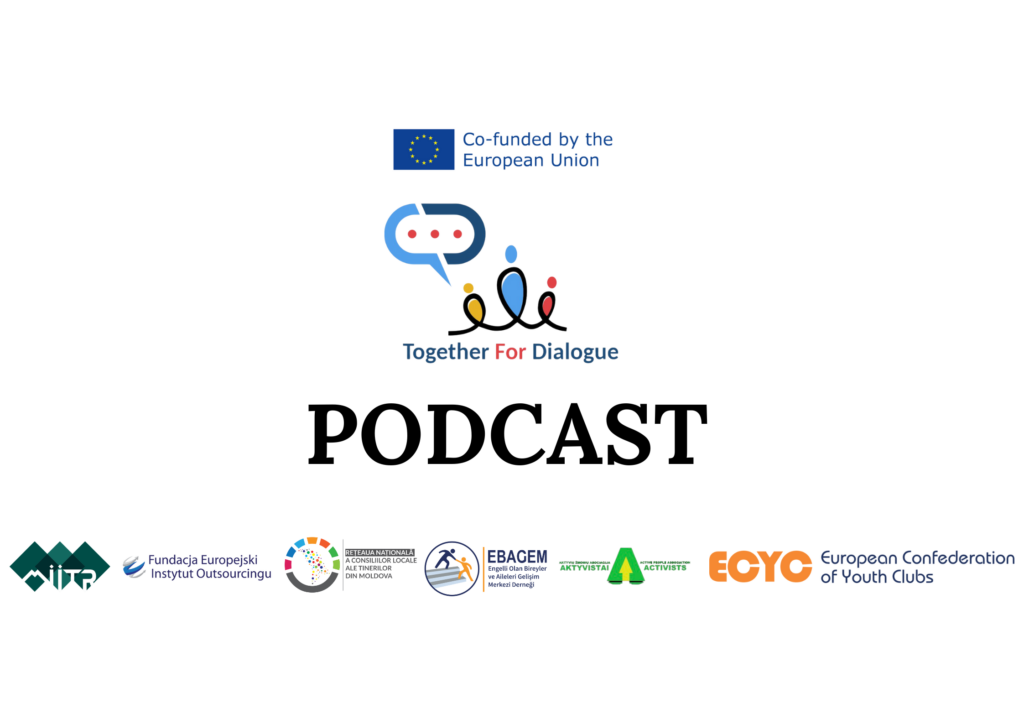
Listen to the podcast in English from each partner country: Poland, Turkey, Moldova, Lithuania, Slovenia, and Armenia.
Podcasts were chosen as the format for the social campaign after thorough discussion and agreement with all partner organizations. This format was selected due to its relevance and impact on young people. Each partner organization followed the same format and addressed pre-selected topics that were prepared in advance for the campaign. The podcast campaign likely reached an audience of over 200 people, given the substantial involvement of numerous organizations and the established viewership.
The podcasts focused on key issues such as the involvement of young people in decision-making processes, the role of leadership in youth activism, civic competence, and digital activism.
The goal of the podcasts was to present the youth leaders, youth worker’s and the decision-maker’s perspectives on the same questions at the local level. Through this social campaign, we successfully highlighted both the similarities and differences in how these issues are perceived across various countries. The podcasts provided a platform to raise significant topics for young people, youth workers, and stakeholders supporting youth.
E-Learning
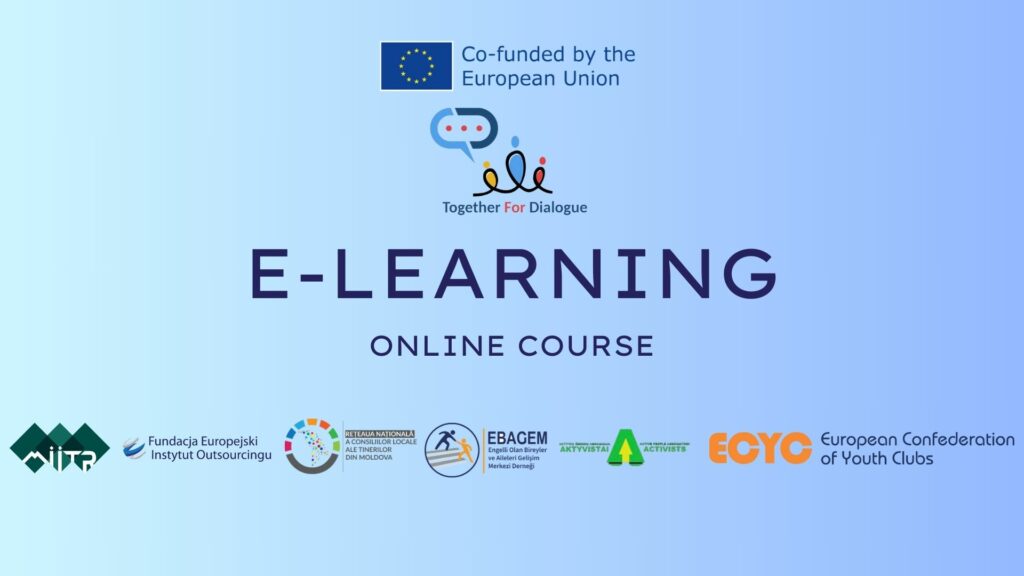
As part of the project, we have developed E-learning (online courses) for young people to help them develop the components of civic competence. This is an innovative format that combines the convenience of distance learning on the Moodle platform and effective experiential learning techniques aimed at acquiring practical skills and knowledge.
The main goal of E-learning is to create conditions to increase the level of civic competence of young people. Through E-learning, young people can prepare themselves for active and informed participation in public life, helping them to better understand their rights and responsibilities, understand and effectively influence social processes.
E-learning includes a set of online courses developed on the basis of experiential learning methodology. This allows not only to study theoretical material, but also to actively participate in its practical application. In the process of learning, course participants perform small assignments, which contributes to a deeper, more practical mastering of the material and its consolidation.
Young people and youth leaders from local communities in the partner countries participated in the process of selecting topics for the E-learning. Also during the youth exchange in Lithuania, the participants supplemented and finalized the topics that were relevant for all project countries together.
As a result we created a set of 10 online courses, which includes a total of 66 parts Each part of the course consists of a short video, some theory and assignments to be completed to prepare yourself for practical application of the information in real life. And each focusing on different aspects of civic competence and youth engagement. Below is a listing of our courses:
- How to organize a local initiative
- Networking for Youth Civic Activists
- Youth entrepreneurship – What you need to know to start your own business
- Active Citizenship
- Non-formal Education
- How To Write Projects?
- Youth participation in decision-making process
- Communication
- Lobby and Advocacy
- Media and Information Literacy
Video materials additionally we have placed on YouTube platform to spread the information and attract attention to E-learning more and more young people.
The total time to master a set of online courses includes almost 79 hours. On the one hand, this allows you to learn the material quickly enough, and on the other hand, efficiently and in a format that is very familiar to young people.
We invite you to join our E-learning courses and enhance your civic competence.
Click below for instructions on how to register and access the courses:
Learn more about the courses and lessons here
Photo Contest: Capturing Civic Activism
The “Capturing Civic Activism” photo contest was one of the formats of a social campaign that aimed to empower and engage youth across Europe in expressing their understanding of civic activism through photography. All six partner organizations were actively involved in disseminating the contest and sending submissions.

Open to participants aged 18-25 from 46 European countries, the contest invited young people to submit photographs that captured moments of civic engagement and social change. The submitted images, along with creative captions, showcased diverse perspectives on active citizenship.
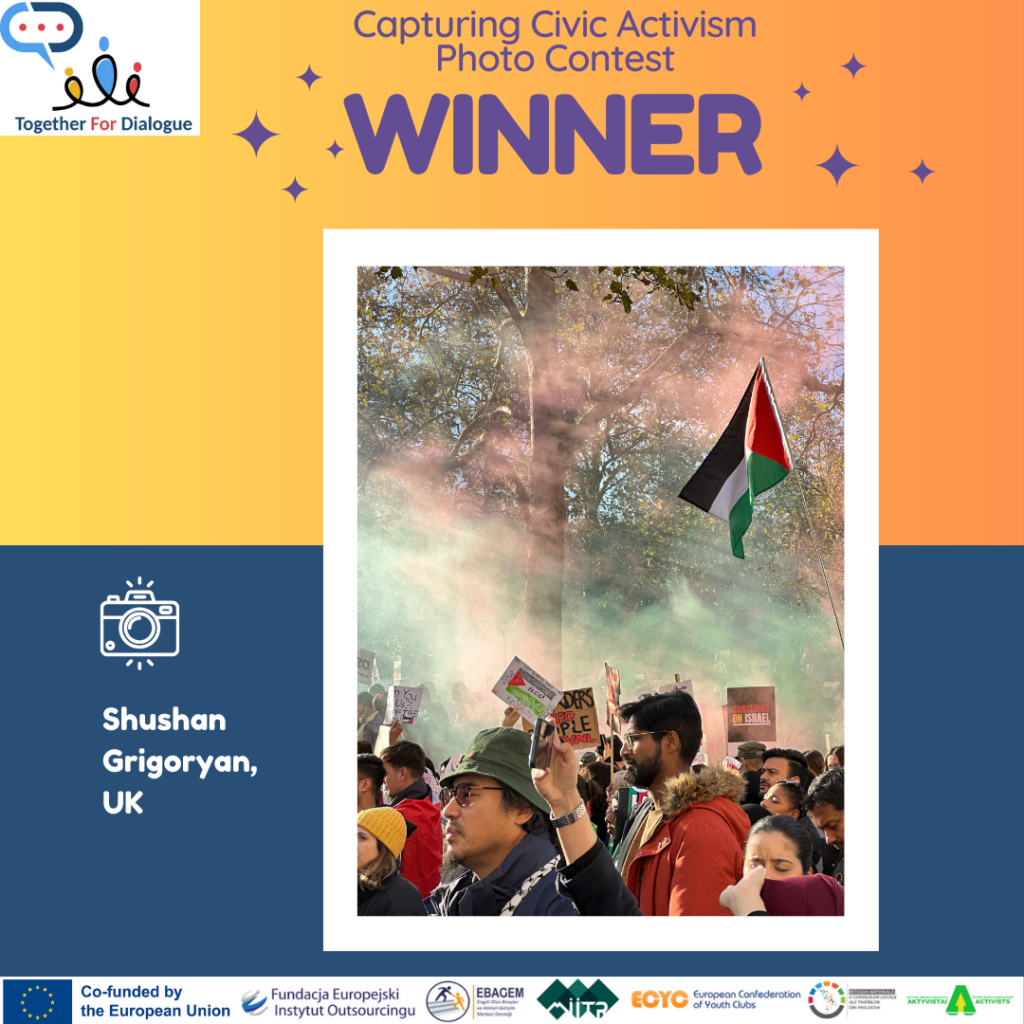
The grand prize of the photo contest was awarded to Shushan Gevorgyan from the UK. As recognition for her exceptional photograph, she received a £100 voucher for an eco-friendly, sustainable online shop available in the UK.
A jury evaluated the entries based on creativity, relevance, visual impact, and the connection between the photo and its caption. Twelve winning photographs were selected and featured in a high-quality 2024 calendar. The campaign culminated in an exhibition during the closing event in March 2024, where the images were displayed, celebrating the powerful narratives of civic activism captured through the lens of Europe’s youth.
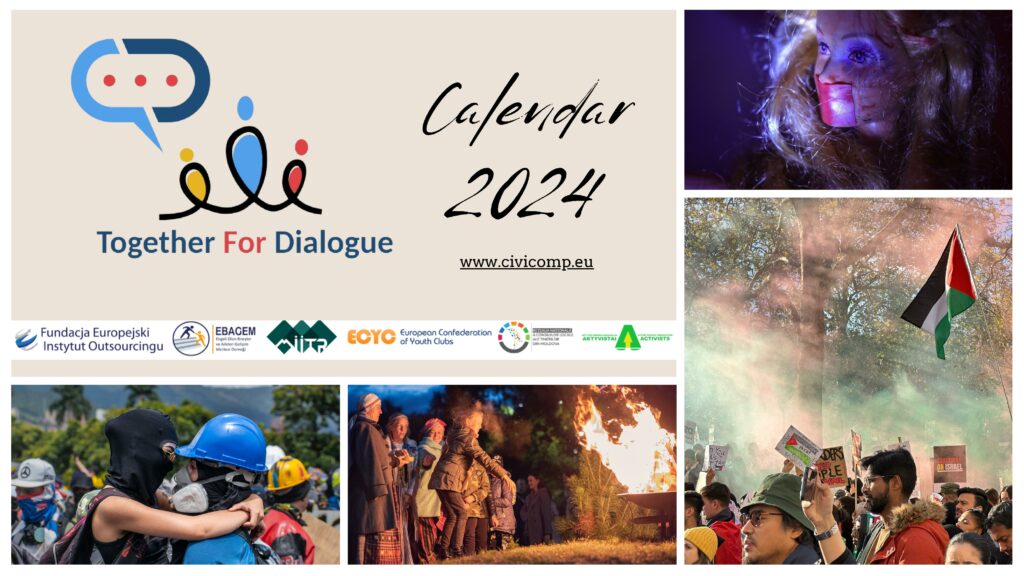
Explore the 2024 Calendar Featuring Winning Photos from the Capturing Civic Activism Contest

